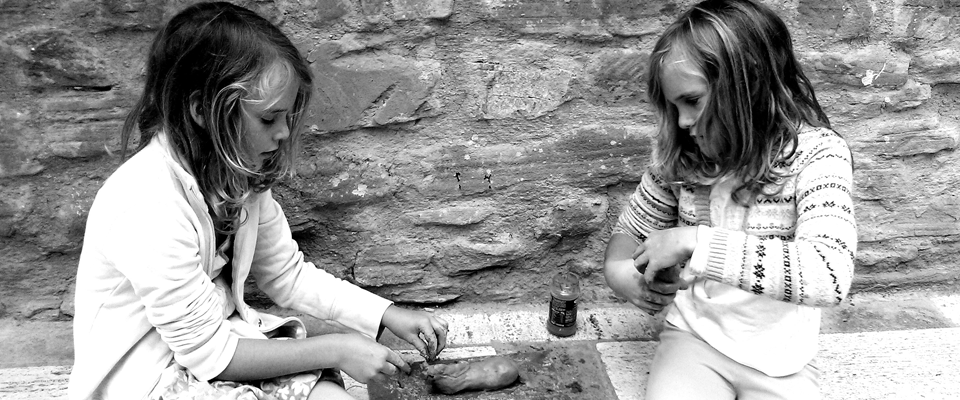When I started out teaching the kids and I say ‘teaching’ because that was exactly how I was approaching it. I had it all organised, I was ready. We would start with a check in, ‘How are you? How is everything? What would you like to do today?’ And in my mind I would have it all prepared I would be guiding them in my direction, as to what I wanted to do.
Firstly nobody really wanted a ‘check in’ it was always a bit cringey and they would sit there squirming and generally feeling awkward and uncomfortable. They wanted to move around, I wanted them to sit still. I wanted them to do stuff, to work, to get things done, they were dripping off their seats and generally curling and wiggling around the place.
I had made a room in our house a ‘school room’, and after about a month I looked at what ‘we’ had done and realised this was not what ‘we’ had done at all really. It was what ‘I’ had done. I learnt fast that the kids weren’t that interested in putting pictures on the wall, they weren’t particularly interested in showing off what they are doing or even putting pen to paper. In fact they were not much bothered about writing in books at all, in compartmentalising subjects, in doing what children generally have to do at school.
Our kids are interested in the BIG picture. That is where the deep natural learning seems to get done. It is totally opposite to everything I have ever learnt in school.
In all my free thinking and liberal mindedness, I realised I wasn’t free at all, they were free and it was irritating me that they weren’t doing what I wanted. My controlling manner was getting deeply triggered as I realised I was wanting to control everything in a seemingly un controlling way (which is worse!)
So I stepped out, in as much as I went and had a chat with myself, as to why I was getting so stressed out and irritated. I then decided to actually really ask them what inspired them and in this way they started asking questions and exploring answers. The leaps were huge, as I stepped out of the room, they had set themselves a quest to find out ‘If Aliens Exist?’ they then moved on to the solar system, then when I came back in 40 minutes later they were all sitting around the computer fixated on star fish, watching star fish tentacles move.
My first reaction was, in my head ‘Guys!!! What about the Aliens??’ but then I realised that they had made a huge leap and it had lead them to watching and learning about the intrinsic details of how a starfish moves. They must have gone from Aliens, Universe, Stars, starfish…who knows…And the following day one boy who was in our small group brought in his Venus fly trap! If you think about it that is brilliant, there is a connection, Venus is a planet in our universe, where aliens may or may not be… Stars lead on to starfish, starfish have tentacles and so do Venus flytraps, in a way…. They made these connections quicker than I did! I was behind the curve in all of this. If I had been in the room then I would have unconsciously stopped their learning by possibly trying to keep them on track but they flew forward without me and I am glad that they did.
So I am talking about the fine balance of facilitation, I think learning arrives in the way that a butterfly does on your finger. If you move too fast it will fly off and you may never see it again. If you give children the space to learn and know when to step out (a lot) and step in (only sometimes) then this to me is the key to great facilitation. Sugata Mitra talks about this alot with his Self Organised Learning Environment project (or SOLE’s) School In The Cloud. https://www.theschoolinthecloud.org/
It is the difference between closing down a child by the sheer fact of asking the wrong question at the wrong time or opening up a kids mind to the magic of everything because in their worlds everything is new interesting and up for grabs.
It is a fine balancing act for me that requires patience and ultimately faith in my children. It is a lesson that I am still learning as I often fall in to the trap of wanting to take over.
I have learnt that stepping back and actually having faith in their ability to learn things is often the hardest but the best thing to do.

